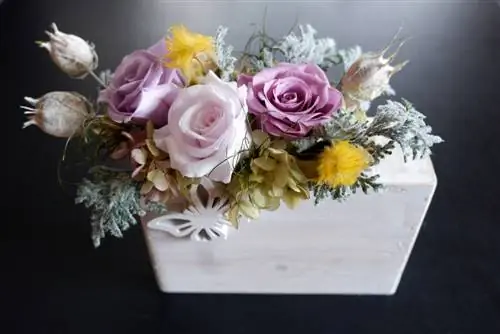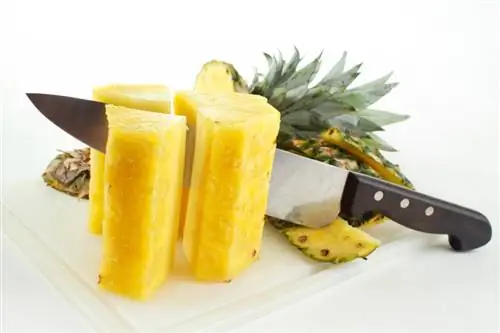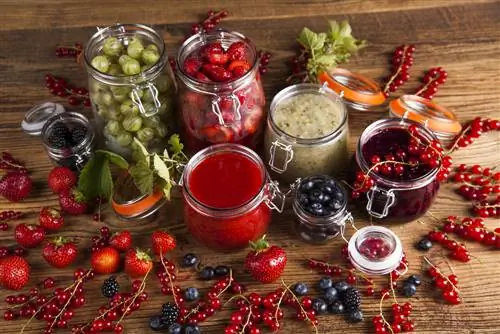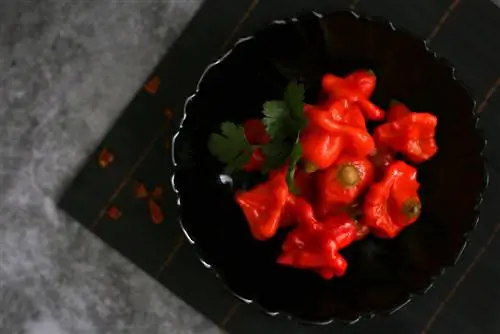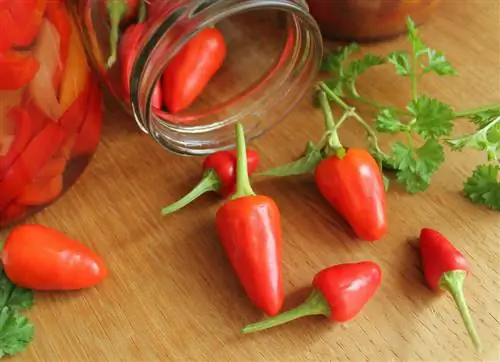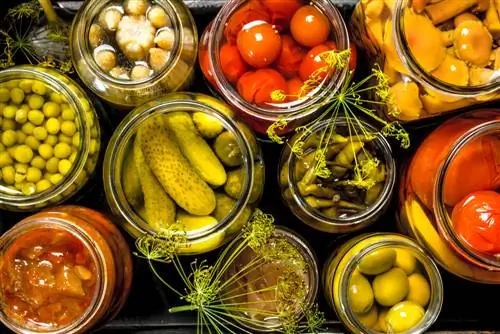- Author admin leonars@hobbygardeners.com.
- Public 2023-12-16 16:46.
- Last modified 2025-01-23 11:22.
A beautiful bouquet of flowers, a special flower from the garden or an interestingly shaped leaf: Unfortunately, the beauty of plants is fleeting. However, there are various ways to preserve them and make them last almost forever.
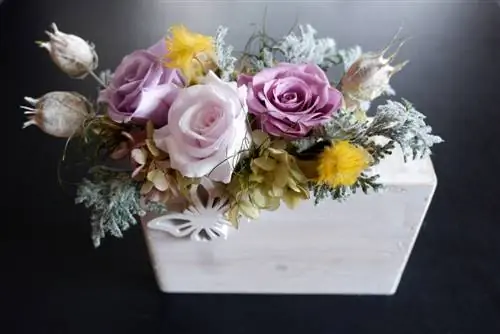
How to effectively preserve plants?
Plants can be preserved by various methods, such as glycerin, dry s alt or silica gel, air drying, wax or oven drying. These techniques make it possible to preserve the natural beauty of plants for a longer period of time and to use them decoratively.
Method 1: Glycerin
This sugar alcohol has the property of binding moisture. You can dry almost all plants with pharmacist-quality glycerin (glycol):
- Mix one part glycerin with two parts water and heat the mixture to 37 degrees.
- Pour the liquid into a vase.
- Cut the plants freshly and place them in the solution.
The plants absorb the water-glycerin mixture and dry within a few days.
Method 2: Dry s alt or silica gel
Special plant drying s alt is available from specialist retailers. Alternatively, you can collect the small bags filled with silica gel that come with many packages and use them for other purposes.
- Fill a container with some dry s alt.
- Put the plant inside and sprinkle enough drying material over it to cover everything.
- Close the container tightly.
How long the drying process takes depends on the moisture content and thickness of the plants. Flowers, for example, need about three to five days to dry completely.
Method 3: Air Drying
This variant is particularly suitable for bouquets, grasses and twigs:
- Tie a piece of twine or a rubber band around the stems.
- Hang the plants upside down in an airy, warm and dry place.
Drying is complete when the leaves rustle gently when touched.
Method 4: Preserving plants with wax
This variant of preservation is primarily suitable for individual parts of plants.
- Melt leftover wax (€16.00 on Amazon) or craft wax from specialist retailers in a small pot.
- Check the temperature, it should not be higher than 60 degrees.
- Soak the plants briefly and let them drain.
Method 5: Drying
Drying is very quick in the oven or a dehydrator.
- Set the devices to the lowest temperature, a maximum of 50 degrees Celsius is optimal.
- Place the plants and check the progress regularly.
Tip
You can also preserve leaves and flowers using pressure. Use thick books or a special press for this. The plant parts are placed between paper and weighed down. When dried, you can stick them in a herbarium or use them as decoration for cards, stationery or nature pictures.

